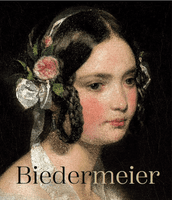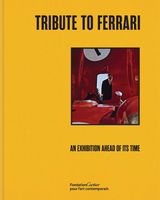| | BOOK FORMAT
Hardcover, 9.5 x 9 in. / 240 pgs / 250 color. PUBLISHING STATUS
Pub Date 9/1/2007
Out of print DISTRIBUTION
D.A.P. Exclusive
Catalog: FALL 2007 p. 22 PRODUCT DETAILS
ISBN 9788889431870 TRADE
List Price: $49.95 CAD $60.00 AVAILABILITY
Not available | TERRITORY
NA LA | | THE FALL 2025 ARTBOOK | D.A.P. CATALOG  | | Preview our FALL 2025 catalog, featuring more than 500 new books on art, photography, design, architecture, film, music and visual culture.
|
| | | The Modern Japanese Tea RoomBy Michael Freeman.
The Modern Japanese Tea Room showcases chashitsus, traditional Japanese tea ceremony salons, as reconceived by contemporary architects and designers. The formal tea ceremony developed in the fifteenth century, and its ritual is closely defined, as is the space for it: traditionally, chashitsus include windows, an alcove (tokonoma) with flowers and painted parchment, bamboo beds (tatami), and a fireplace on the floor (ro); they do not include furniture, in part because they are spaces for meditation. More recently those traditions--as closely associated with the upper class as ""high tea"" is in England and its colonies--have been rediscovered by architects and designers as a perfect match for their contemporary work. The Modern Japanese Tea Room includes projects from renowned Japanese names including Kengo Kuma, Terunobu Fujimori, Shigeru Uchida, Arata Isozaki, Chitoshi Kihara, Yasujirou Aoki and Hisanobu Tsujimura. Their work in a wide variety of materials--paper, wood, plastic, aluminum, glass, concrete--represents the latest and most inspiring in Japanese architecture and interior design, from a tree house in Nagano to a portable space in black lacquer.
The Modern Japanese Tea Room opens with an introduction to the history of the tea ceremony, identifying its physical elements and going over to the ceremony itself, and then moves on to more than 35 projects gathered together in 250 of Michael Freeman's powerful color images. A tribute to contemporary Japanese culture and a taste of its future.
|
| | | | FORTHCOMING AND NEW: DESIGN AND DECORATIVE ARTS |  | Walther König, KölnISBN: 9783753308159
USD $55.00 | CAD $83.5Pub Date: 12/9/2025
Active | In stock
|
|  | Silvana EditorialeISBN: 9788836660698
USD $45.00 | CAD $64Pub Date: 11/11/2025
Active | In stock
|
|  | Verlag für moderne KunstISBN: 9783991531432
USD $45.00 | CAD $64Pub Date: 7/1/2025
Active | In stock
|
|  | Marsilio ArteISBN: 9791254632994
USD $50.00 | CAD $78 UK £ 43Pub Date: 12/16/2025
Active | In stock
|
|  | Lars Müller PublishersISBN: 9783037787816
USD $60.00 | CAD $85Pub Date: 7/1/2025
Active | In stock
|
|  | Lars Müller PublishersISBN: 9783037787922
USD $50.00 | CAD $70Pub Date: 1/13/2026
Forthcoming
|
|  | Hatje CantzISBN: 9783775759977
USD $75.00 | CAD $105Pub Date: 7/29/2025
Active | Out of stock
|
|  | Fondation Cartier pour l'art contemporainISBN: 9782869251922
USD $75.00 | CAD $90Pub Date: 1/13/2026
Forthcoming
|
|  | Éditions DilectaISBN: 9782373722246
USD $50.00 | CAD $70 UK £ 40Pub Date: 2/10/2026
Forthcoming
|
|  | Strandberg PublishingISBN: 9788794418676
USD $50.00 | CAD $70Pub Date: 8/26/2025
Active | In stock
|
|  | nai010 PublishersISBN: 9789462088627
USD $35.00 | CAD $53Pub Date: 2/11/2025
Active | Out of stock
|
|  | Lars Müller PublishersISBN: 9783037787786
USD $25.00 | CAD $38Pub Date: 1/7/2025
Active | In stock
|
|
|
| |